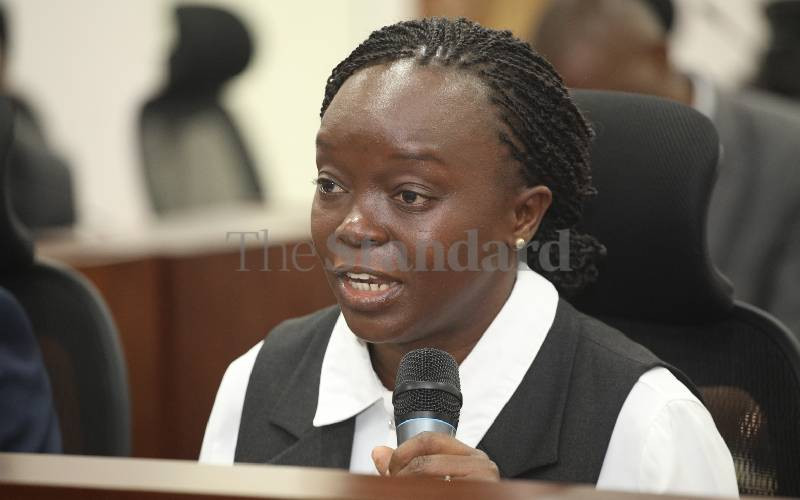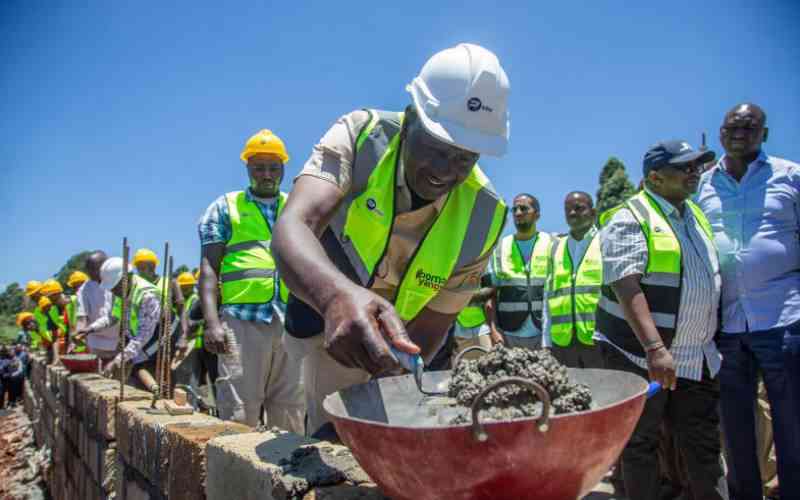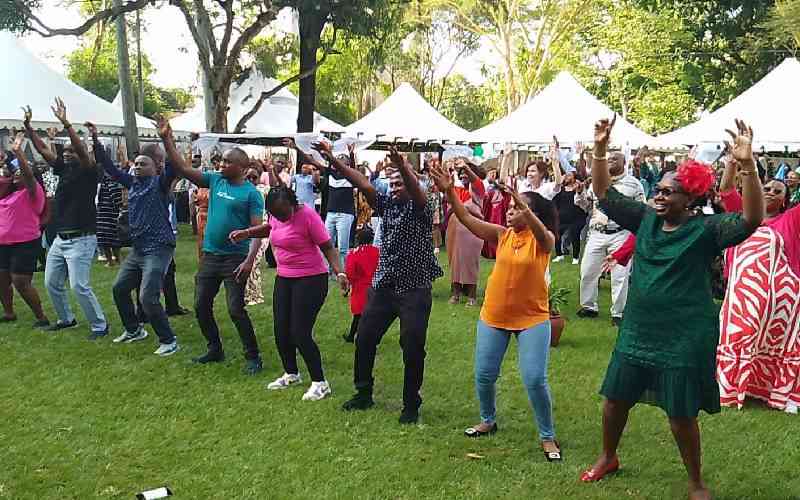Kenya: Poverty in Africa could be reduced if the continent invested in infrastructure and ruthlessly fought corruption, the International Monetary Fund (IMF) has said.
In the just concluded Africa “Rising: Building to the Future” conference in Mozambique, the Fund’s Managing Director Christine Lagarde observed that energy, roads and technology grids are crucial ingredients “of any strong and durable edifice”.
This, she said, meant that Africa should close its infrastructure gap, given thar over the past three decades, per capita output of electricity in Sub-Saharan Africa have remained virtually flat.
“Only 16 per cent of all roads are paved, compared with 58 per cent in South Asia. These shortfalls represent huge costs to businesses,” said Ms Lagarde. She argued that investments in infrastructure are critical for growth to be sustained.
She lauded the steps taken by Ethiopia and Mozambique, including the promotion of cross-border trade in electricity and in upping their energy supplies that would translate to reliable and affordable supplies.
Kenya and Côte d’Ivoire, too, were acclaimed for initiating regional infrastructure projects in power, roads and rail.
Kenya is expected to import more than 500 megawatts (MW) of power from Ethiopia’s controversial Gibe III power project that will generate about 1,870 MW upon completion.
Often compared to China’s Three Gorges, the Gibe III Dam will be the world’s fourth largest hydropower project. Ethiopia expects to earn over $400 million (Sh35b) annually from power exports, besides Kenya, Djibouti, Sudan, Yemen, Somalia and Eritrea.
“High quality infrastructure can be a magnet for foreign investment. It can accelerate diversification and employment creation, and support further regional integration,” said Ms Lagarde.
Currently, over $93 billion (Sh81.84 tr) is needed annually to close infrastructure gap in Africa.
The 70-year-old Bretton Woods institution, which has for a long time been closely associated with the Western powers, says it is ready to help in realising such investments.
Financing options
“We are working with many of our member countries to strengthen public investment and debt management capacity. This helps to put these countries in a much better position to take advantage of increasing financing options,” said the Fund.
Critics say the unusual soft stance assumed by the Fund is aimed at “cutting to size” the overwhelming infrastructure support Africa is getting from China.
Chinese financing commitments in infrastructure scaled up from less than $1 billion (Sh88b) per year in 2001-2003, to about $6 billion (Sh528b) per year in 2006-2007.
Stay informed. Subscribe to our newsletter
These finances usually on concessional terms are more concentrated in power and rail. More recently, the Chinese have added roads to its portfolio. But it is corruption, the vice that seems to be deeply ingrained in the African culture that threatens the continent’s battle against poverty.
Ms Lagarde observed that while Africa is the home to more than 30 per cent of the world’s mineral reserves, little help, if any, have come out of these vast resources due to lack of institutions.
“Properly managed, these endowments offer unparalleled opportunity for economic growth. Yet—and let me be frank—in too many countries, the rents from extractive industries are captured by just a few,” she said,
“Mining can account for an important share of output and export earnings, but often contributes relatively little to budget revenues and job creation,” Lagarde said, adding that this corrodes the fabric of the economy and its social cohesion.”
Enormous resources
For the enormous resources to help Africans, the IMF boss said that the continent must strengthen the institutional and governance frameworks that manage these resources. Transparency, she pointed out, can also help increase accountability.
The International Monetary Fund and the Government of Mozambique high-level conference in Maputo, Mozambique, on May 29 to 30 brought together policymakers, the private sector, and civil society from sub-Saharan Africa and beyond.
The participants discussed the challenges facing the continent as it builds upon the strong economic gains made since the 2008 global economic crisis.
 The Standard Group Plc is a
multi-media organization with investments in media platforms spanning newspaper
print operations, television, radio broadcasting, digital and online services. The
Standard Group is recognized as a leading multi-media house in Kenya with a key
influence in matters of national and international interest.
The Standard Group Plc is a
multi-media organization with investments in media platforms spanning newspaper
print operations, television, radio broadcasting, digital and online services. The
Standard Group is recognized as a leading multi-media house in Kenya with a key
influence in matters of national and international interest.
 The Standard Group Plc is a
multi-media organization with investments in media platforms spanning newspaper
print operations, television, radio broadcasting, digital and online services. The
Standard Group is recognized as a leading multi-media house in Kenya with a key
influence in matters of national and international interest.
The Standard Group Plc is a
multi-media organization with investments in media platforms spanning newspaper
print operations, television, radio broadcasting, digital and online services. The
Standard Group is recognized as a leading multi-media house in Kenya with a key
influence in matters of national and international interest.







